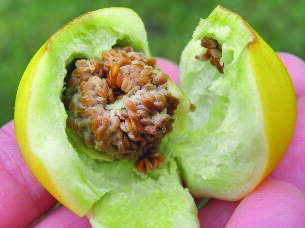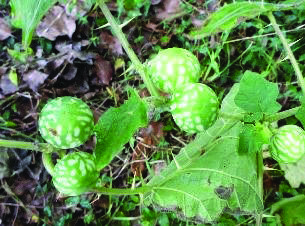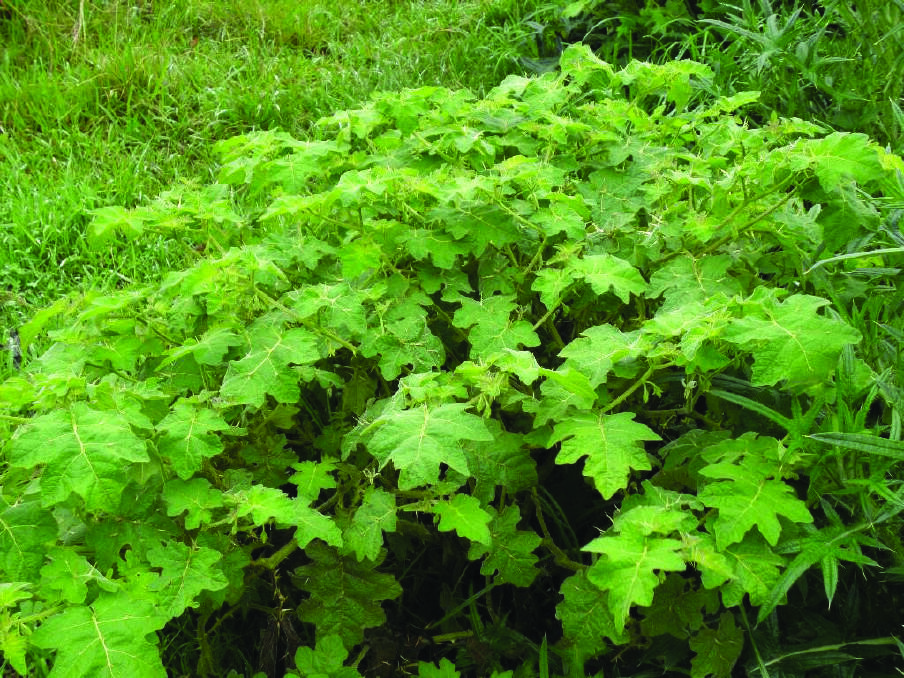
Earlier this year Tropical Soda Apple (TSA) was located and controlled in the Bellangry area.
Subscribe now for unlimited access.
$0/
(min cost $0)
or signup to continue reading
Hastings Landcare says this is an invasive weed has huge potential to spread through our area ,so it is critical that landholders check their properties.
The first occurrence of TSA in Australia was discovered in the Upper Macleay Valley. This weed originates from South America.

TSA is a prickly, perennial shrub that grows to two metres in height. Large (to 12mm) prickles are present on most plant parts and the mature fruit are yellow containing brown seeds. It grows in open and semi-shaded areas such as pastures or along rivers and creeks.
Like many weeds, TSA out-competes native species. With the ability to form a hectare thicket in 6 months if not controlled, TSA is no exception. This weed can produce fruit in two months of germination and each plant can produce 45 000 seeds. Additionally, the leaves are unpalatable to livestock.
TSA is spread mainly through cattle movements and via water. Cattle love the fruit, seeking out and eating the mature fruit and once digested the seeds are primed to germinate in the cattle dung. Deer, feral pigs and birds also eat and disperse the fruit. The fruit also float in water traveling to new locations to germinate.

To prevent this weed from spreading, it is important to check your property regularly, especially if there is a known infestation nearby.
Areas to check include stockyards, holding paddocks, fence lines,drains, gullies, creeks, etc.
Cattle new to a property should be quarantined for at least six days, inspecting the area regularly for emerging seedlings.
When controlling TSA, there are a few things to keep in mind. Mature plants cannot simply be sprayed as the seed, protected in the fruit, will remain viable. All fruit need to be collected. Seedlings can be hand-pulled as soon as possible. It is critical to follow up by returning to the site at least every two months to check for seedlings.

